|
|
|
| My Favourite Planet > English > Europe > Greece > Macedonia > Stageira & Olympiada > Olympiada gallery |
| Stageira & Olympiada |
Olympiada gallery |
 |
 |
3 of 18 |
 |
 |
|
| |
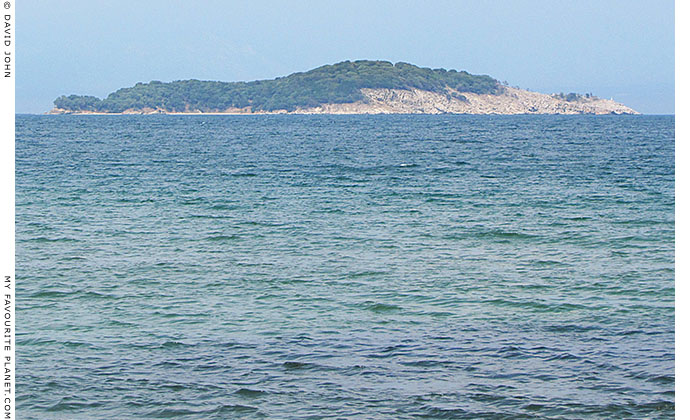
The island of Kafkanas (ancient Kapros) in the Strymonic Gulf. |
| |
Continued from previous page.
According to the ancient geographer Strabo, "the distance by sea around the peninsula from the city Acanthus as far as Stageirus, the city of Aristotle, is four hundred stadia. On this coast is a harbour, Caprus by name, and also an isle with the same name as the harbour." Strabo, Geography, Book 7, fragments, 34
He also wrote: "... there is a cape which with Athos forms the Strymonic Gulf, I mean the cape which has had on it a city called Apollonia. The first city on this gulf after the harbour of the Acanthians is Stageira, the native city of Aristotle, now deserted; this too belongs to the Chalcidians and so do its harbour, Caprus, and an isle bearing the same name as the harbour." Strabo, Geography, Book 7, fragments, 36 [1]
Strabo's "400 stadia" between Akanthos and Stageira is quite an overestimate. The length of a stadion was not uniform around the Greek world and varied between 157 metres (itineraries) and 185 metres (Attic/Italic). 400 stadia would therefore be somewhere between 62.8 and 74 km. The distance between the two cities by land is about 25 km, and even if a ship gave the Marmari penisular (the tip of which is today called Cape Eletfherou) a wide berth, the distance by sea could not have been more than 35 km.
In modern times scholars were uncertain of the location of Ancient Stageira and Kapros. The island was tentatively identified by cartographers in the 17th century (see the historical maps in History of Stageira part 8), although since it is the only island in the area, this could not have been too difficult. However, since the remains of Stageira remained buried among trees and vegetation, debate continued about the location of city until the end of the 20th century when the Greek archaeologist Dr. Kostas Sismanidis began excavating here.
Evidence has been discovered proving that Kapros was inhabited from the classical era until the middle Byzantine period. At the western end of the island remains have been found of two large cisterns and a Byzantine building. |
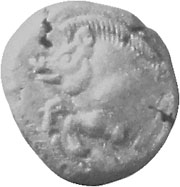
Silver stater of Stageira,
530-520 BC, depicting
a wild boar (kapros). |
| |
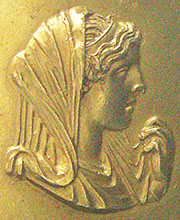
Detail of a gold medallion
depicting Olympias.
Mid 3rd century AD.
Found in Abukir, Egypt. [2]
Thessaloniki Archaeological
Museum. Inv. No. MΘ 4304. |
| |
| |
| |
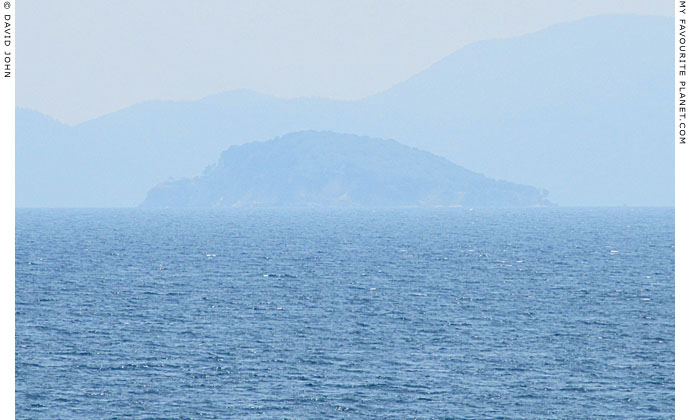
Kafkanas island and the hills of eastern Halkidiki behind (west of) Olympiada from the northeast. |
| |
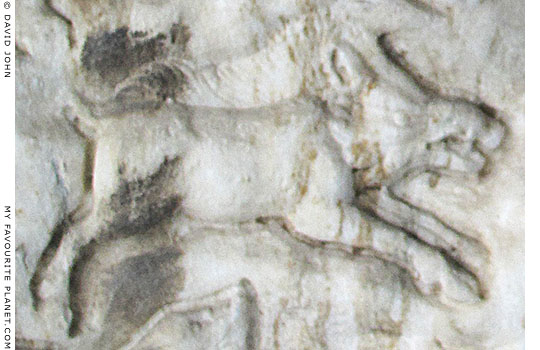
Marble relief of a wild boar.
Detail of a relief of Orpheus surrounded by animals. See photo below. |
| |
| |
Notes, references and links |
 |
|
1. Strabo on Stageira and Kapros.
Strabo (Greek, Στράβων, Strabon; 64/63 BC – circa 24 AD), Greek geographer, philosopher and historian from Amaseia in Pontus (today Amasya, Turkey).
four hundred stadia. A stadion is quivalent to 157-185 metres.
400 stadia = 400 x 157 = 62.8 km, or 400 x 185 = 74.0 km
The Geography of Strabo, Book 7, fragments, 1a - 60, edited by H. L. Jones. Harvard University Press, Cambridge, Mass.; William Heinemann Ltd, London. 1924. At Perseus Digital Library. |
|
|
| |
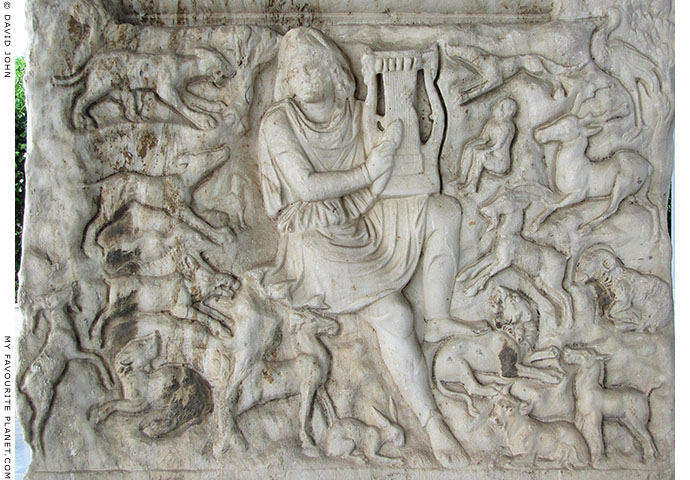
Orpheus playing his lyre to an audience of animals,
a popular theme in art, particularly in Roman times.
"With his songs, Orpheus, the bard of Thrace, allured the trees,
the savage animals, and even the insensate rocks, to follow him."
Ovid (43 BC – 17/18 AD), Metamorphoses, Book XI.
"Music has charms to soothe the savage breast,
To soften rocks, or bend a knotted oak."
William Congreve, The Mourning Bride, 1697, Act 1 Scene 1.
A relief on the side of a marble sarcophagus in the "Neo Attic" style
of the Roman imperial period, second quarter of the 3rd century AD,
in imitation of more ancient Classical and Hellenistic sculpture.
Thessaloniki Archaeological Museum. Inv. No. 1246.
This is one end of the sarcophagus in the photo on the previous page.
According to Greek myth, Orpheus learned to play the lyre from Apollo, who was given
the instrument by its inventor Hermes (see Ancient Stageira gallery, page 19). |
| |
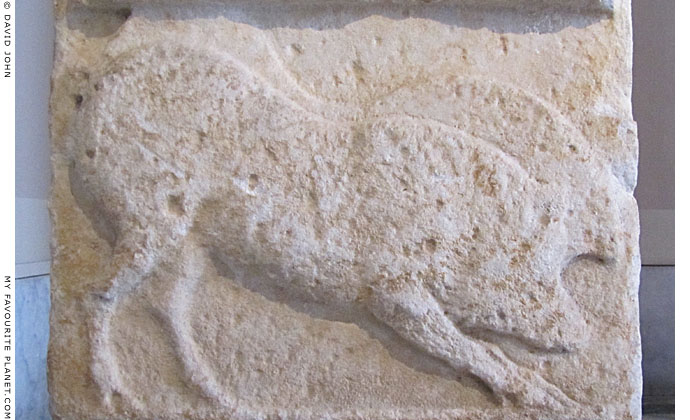
Relief of a wild boar on the funerary stele of a warrior or hunter from the
Dodecanese island of Symi. Local marble. Archaic, first half of the 6th century BC.
Istanbul Archaeological Museum, Inv. No. 507 T. |
Photos, maps and articles: copyright © David John,
except where otherwise specified.
Additional photos: copyright © Konstanze Gundudis
All photos and articles are copyright protected.
Images and materials by other authors
have been attributed where applicable.
Please do not use these photos or articles without permission.
If you are interested in using any of the photos for your website,
project or publication, please get in contact.
Higher resolution versions are available on request.
My Favourite Planet makes great efforts to provide
comprehensive and accurate information across this
website. However, we can take no responsibility for
inaccuracies or changes made by providers of services
mentioned on these pages. |
| |
 |
Visit the My Favourite Planet Group on Facebook.
Join the group, write a message or comment,
post photos and videos, start a discussion... |
|
|
| |
|
|
| |
| |
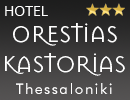 |
| |
 |
| |
 |
| |
 |
| |
George Alvanos
rooms in
Kavala's historic Panagia District
Anthemiou 35,
Kavala, Greece
kavalarooms.gr
|
| |
 |
| |
 |
| |
Olive Garden Restaurant
Kastellorizo,
Greece
+30 22460 49 109
kastellorizo.de
|
| |
Papoutsis
Travel Agency
Kastellorizo,
Greece
+30 22460 49 286
greeklodgings.gr
|
| |
|